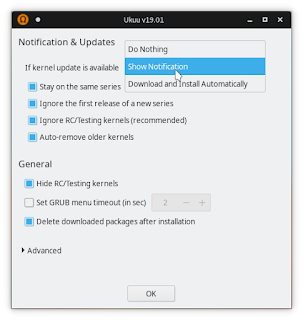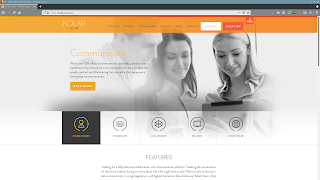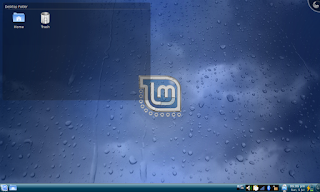Many of our readers are perhaps familiar with the Ubuntu Kernel Update Utility, better known as Ukuu. It has gotten some publicity in the past, and we have written about it here as well. In a nutshell, Ukuu is a graphical utility that allows a user to easily view, install, and manage kernels from the Ubuntu Mainline archive.
There are many reasons why someone may want to do this, and we discussed those reasons in our previous look at UKUU. So if you need a quick refresher, head over to our previous article, have a cup of tea, read, and then you can pick up from there.
Recently, the applications developer released a new version, numbered 19.01, adding many new features and some nice automation functions.
The caveat here is that while releasing a vastly improved version of the software, the developer has also moved to a paid model. In the release announcement, the developer stated the following:
When I read that, it was both surprising and not surprising at the same time. Let me explain. It's surprising, because this utility has gotten a lot of attention the last few years over the web within the greater Ubuntu ecosphere. Meaning, it's a valuable aid for anyone running a 'Buntu-based distribution such as KDE Neon or Linux Mint or a plethora of other distributions out there. So the fact that only twelve users have ever donated to such a project was somewhat startling, as well as moderately disappointing.
On the other hand, it's not entirely a shock since we operate in the free software realm and have a tendency to prefer things open source and free (as in freedom). On that last point, notice that I said free as in Freedom, not free as in beer. We all deserve the right to make a living or to try to augment our monthly income just a bit however we can, so I am not begrudging the author's choice of moving to a paid model here. I also do not want to go into a large debates over license software vs. open source software. For my use in for this review, I am strictly looking at things from a pragmatic standpoint with regards to the best tool for the job. And in this case, the job is keeping our systems updated and secure, and by running the latest from the Linux kernel release team.
If you're curious about the initial feedback from the community, there was a Reddit post with some discussion on it which gives a good idea probably of the feedback and general consensus on the announcement.
With all that out of the way, let's take a quick look at what Ukuu do should you opt for the paid version. I recently made the purchase and have been using Ukuu for a few weeks now. I am happy to report that I am very happy with my purchase. In addition to everything that you could do before (and continue to do in the free version), there were many useful features added that simply put this software utility into what I would call a professional Realm.
Here's what you can expect in Ukuu 19.01, should you make a purchase.
That is quite a lot for this release! From a usability perspective, I really like how the application gives the user either full automation, full control, or whatever hybrid - blend they are comfortable with. I should also mention that there are full instructions on what to do should you install a kernel that for some reason due to a bad download or other factors you are not able to reboot your system.
There seems to be a sufficient amount of hand-holding here to keep everyone safe and not borking their system by randomly clicking buttons. I like that. Having said that, I have been using this application for years and extensively testing this new paid version and have not had any problems using it.
I am aware that some people will begrudge using such a utility. I know this from reading comments on this application in the past and others like it. The thing one has to remember is that there are other factors as to whether a purchase of this application make sense to an individual or not. Things like safety, convenience, wanting to fund further developemt, avoiding command line necessities when possible, and other factors lead many to like these types of utilities.
Of course you can accomplish the same thing other ways including the command line and available scripts and other methods. Personally, I find Ukuu invaluable as it will alert me when a new kernel is out an offer to install it without me having to think about it or take time to do it. Also worth noting is that having the full changelog to an individual kernel just a button away (Ukuu will open the full changelog in your text editor of choice), to quickly let me decide whether I really need to install this point release now, or perhaps a way to release or two down the road is a really nice touch.
I'm glad I purchased the paid version of the Ukuu utility, and while I am not here trying to tell you that you should pay for it, I do hope this article has informed you a little more about the continued development of this really cool Linux application. As always, your thoughts are welcome.
The license fee for Ukuu is $11 (US) for a lifetime subscription, which seems entirely reasonable. If you'd like more information on Ukuu 19.01, see the project's main release page here. There, by scrolling down to the comments, you can read more about the developer's decision to move to from an open source model. He also states that the previous version is still available in its original repository and can easily be forked and developed by someone else or a team of people should they so desire. So here is kind of a win-win for everyone. And that's yet another reason to love Linux.
There are many reasons why someone may want to do this, and we discussed those reasons in our previous look at UKUU. So if you need a quick refresher, head over to our previous article, have a cup of tea, read, and then you can pick up from there.
Recently, the applications developer released a new version, numbered 19.01, adding many new features and some nice automation functions.
 |
| Ubuntu Kernel Update Utility 19.01 |
The caveat here is that while releasing a vastly improved version of the software, the developer has also moved to a paid model. In the release announcement, the developer stated the following:
"Ukuu v19.01 is now available with some major changes.
Starting with this version Ukuu is moving to a paid licensing model instead of accepting donations. A license needs to be purchased to use the app and receive future updates.
This change was necessary due to lack of donations. The last version of this app (v18.9) had 60,000 downloads, yet only 12 users have donated over the last 2 years. It was not possible for me to continue working on this application for free, and making it paid seemed like a better alternative than discontinuing the project.
If you are one of the few who donated to this project in the past, you will be receiving a free license for the paid version. Please drop me an email if you want one."
Wait what?
When I read that, it was both surprising and not surprising at the same time. Let me explain. It's surprising, because this utility has gotten a lot of attention the last few years over the web within the greater Ubuntu ecosphere. Meaning, it's a valuable aid for anyone running a 'Buntu-based distribution such as KDE Neon or Linux Mint or a plethora of other distributions out there. So the fact that only twelve users have ever donated to such a project was somewhat startling, as well as moderately disappointing.
On the other hand, it's not entirely a shock since we operate in the free software realm and have a tendency to prefer things open source and free (as in freedom). On that last point, notice that I said free as in Freedom, not free as in beer. We all deserve the right to make a living or to try to augment our monthly income just a bit however we can, so I am not begrudging the author's choice of moving to a paid model here. I also do not want to go into a large debates over license software vs. open source software. For my use in for this review, I am strictly looking at things from a pragmatic standpoint with regards to the best tool for the job. And in this case, the job is keeping our systems updated and secure, and by running the latest from the Linux kernel release team.
If you're curious about the initial feedback from the community, there was a Reddit post with some discussion on it which gives a good idea probably of the feedback and general consensus on the announcement.
Which brings us to here
 |
| Ukuu's simple, streamlined interface hides a lot of functionality under the hood |
With all that out of the way, let's take a quick look at what Ukuu do should you opt for the paid version. I recently made the purchase and have been using Ukuu for a few weeks now. I am happy to report that I am very happy with my purchase. In addition to everything that you could do before (and continue to do in the free version), there were many useful features added that simply put this software utility into what I would call a professional Realm.
What's new in 19.01?
Here's what you can expect in Ukuu 19.01, should you make a purchase.
- New, easier to use GUI
- Faster update check - No longer a need to build a cache
Better Notifications
Automatic Updates
Automatic removal of older kernels
Verified GPG-signed hashes on downloads - Automatic public key addition
- New command line options
- You can now install the latest kernel without specifying the version, by using the command --install-latest
- Robust logging
That is quite a lot for this release! From a usability perspective, I really like how the application gives the user either full automation, full control, or whatever hybrid - blend they are comfortable with. I should also mention that there are full instructions on what to do should you install a kernel that for some reason due to a bad download or other factors you are not able to reboot your system.
There seems to be a sufficient amount of hand-holding here to keep everyone safe and not borking their system by randomly clicking buttons. I like that. Having said that, I have been using this application for years and extensively testing this new paid version and have not had any problems using it.
 |
| The Main Ukuu 19.01 GUI, with a brief explanation of available selections |
 | ||||||
| Plenty of options here, for both safety and convenience |
 |
| Installing a kernel opens an informative terminal session showing what's all happening in detail |
Conclusion
I am aware that some people will begrudge using such a utility. I know this from reading comments on this application in the past and others like it. The thing one has to remember is that there are other factors as to whether a purchase of this application make sense to an individual or not. Things like safety, convenience, wanting to fund further developemt, avoiding command line necessities when possible, and other factors lead many to like these types of utilities.
Of course you can accomplish the same thing other ways including the command line and available scripts and other methods. Personally, I find Ukuu invaluable as it will alert me when a new kernel is out an offer to install it without me having to think about it or take time to do it. Also worth noting is that having the full changelog to an individual kernel just a button away (Ukuu will open the full changelog in your text editor of choice), to quickly let me decide whether I really need to install this point release now, or perhaps a way to release or two down the road is a really nice touch.
I'm glad I purchased the paid version of the Ukuu utility, and while I am not here trying to tell you that you should pay for it, I do hope this article has informed you a little more about the continued development of this really cool Linux application. As always, your thoughts are welcome.
The license fee for Ukuu is $11 (US) for a lifetime subscription, which seems entirely reasonable. If you'd like more information on Ukuu 19.01, see the project's main release page here. There, by scrolling down to the comments, you can read more about the developer's decision to move to from an open source model. He also states that the previous version is still available in its original repository and can easily be forked and developed by someone else or a team of people should they so desire. So here is kind of a win-win for everyone. And that's yet another reason to love Linux.















